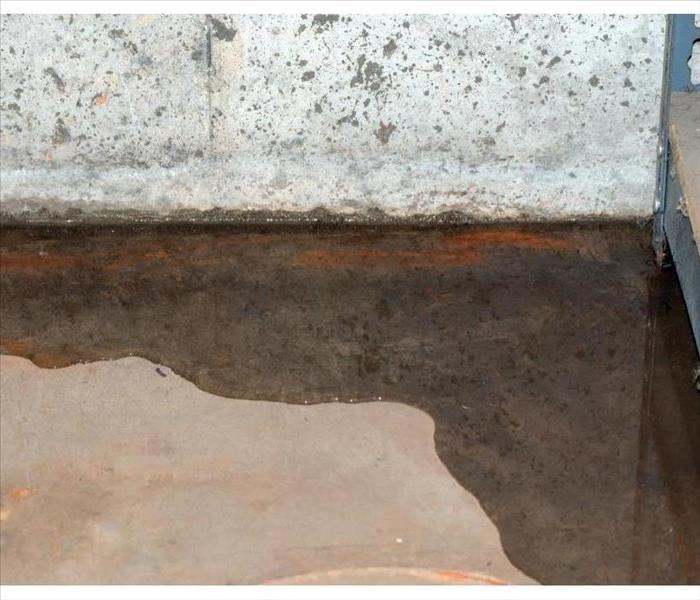What Leads to Flooding in Basements?
11/8/2022 (Permalink)
What Causes Basement Flooding?
There are many reasons why your basement may be flooded. The good news is that most of these issues can be prevented by checking and maintaining the areas around your home. The following are some of the most common causes for flooding in basements.
1. Plumbing leaks
A plumbing leak could result from any of the following:
- A cracked pipe
- Leaking faucet or fixture
- Broken valve
2. Foundation cracks
Foundation cracks can allow water to seep into your basement. To check for foundation cracks, look at the floor joists that support your home's walls. If you see any cracked or bowed areas, these may be signs of a problem.
To fix this issue, call in a professional who will use either wood or dry-set concrete blocks to restore the support system underneath your home. This will prevent further damage from occurring and keep any water from seeping into your basement in the future.
3. Sewage backups
Sewage backups are a common problem in basements. When your home's pipes and drains become clogged, sewage can back up into the basement, causing serious damage to your property. Sewage backups occur when water remains stagnant in a drain or sewer line for too long. This happens most often when leaves and other debris block the pipe, preventing waste from being properly disposed of. If you notice any of these signs—a strange smell coming from your drainage system, standing water in the bottom of your sink or toilet bowl—it may be time to check for leaks or clogs before it becomes an emergency:
Once it's safe to enter the area where backup occurred (always wear protective gear such as rubber gloves when handling wastewater), place clean towels around affected areas to absorb excess moisture before attempting any cleanup efforts by hand with paper towels or rags that can later be thrown away immediately outside (never through drains). Be sure not touch anything unless wearing protective clothing as well as washing hands thoroughly after contact with any potentially harmful substances like mold spores.
4. Clogged gutters
Gutter systems are an important part of the foundation, and they can be a great first line of defense against water damage. However, if you don't keep your gutters clean, clogging will occur. This is more likely to happen if there are leaves or other debris in the gutter system that prevent water from flowing freely through it. When this happens, water may back up and seep into your basement.
5. Flooded yard
Sump pumps are an important part of flood prevention. They help get rid of excess water in the yard, preventing it from entering your basement through cracks in the foundation. Sump pumps can be installed in a pit or sump basin, which is essentially just a hole dug into the ground with a pump on top of it. The pump should have its own dedicated power source and be connected to PVC piping that leads to an overflow drain outside of your house.
There are some things you can do to prevent basement flooding. Make sure that you check your plumbing regularly for leaks and try not to overload your drains with too much water. If there is ever a sewage backup, call a professional immediately before the problem gets worse. You should also have your yard inspected regularly by a professional landscaper who will help identify any potential problems before they become serious enough that they cause flooding in your Northeast Dallas, TX home.



 24/7 Emergency Service
24/7 Emergency Service
